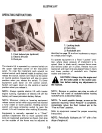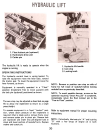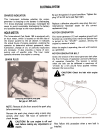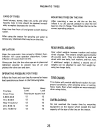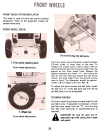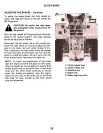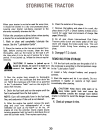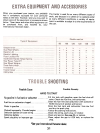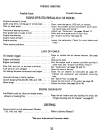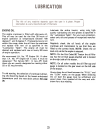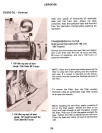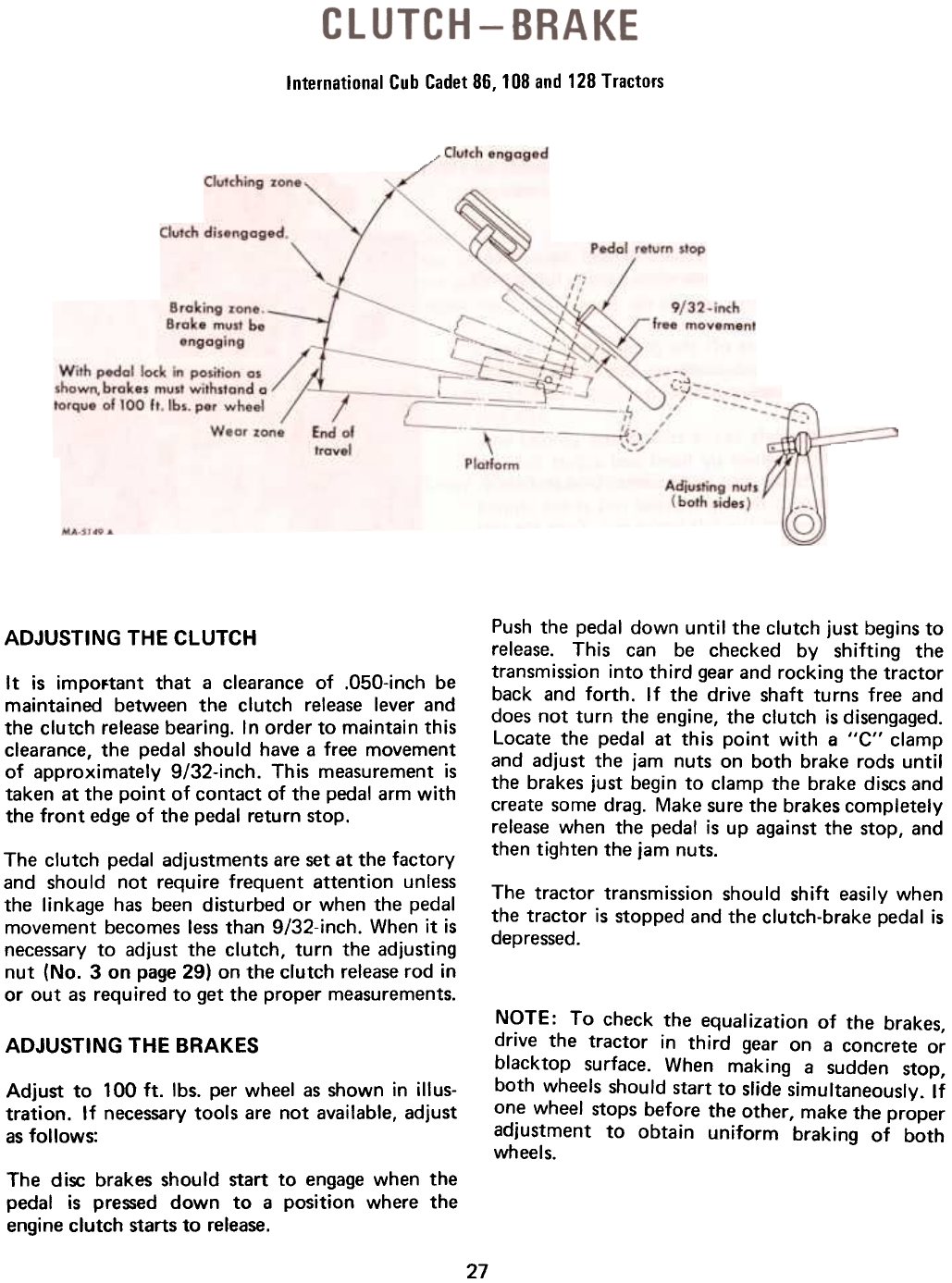
International Cub Cadet 86, 108 and 128 Tractors
Push the pedal down until the clutch just begins to
release. This can be checked by shifting the
transmission into third gear and rocking the tractor
back and forth. If the drive shaft turns free and
does not turn the engine, the clutch is disengaged.
Locate the pedal at this point with a "c" clamp
and adjust the jam nuts on both brake rods until
the brakes just begin to clamp the brake discs and
create some drag. Make sure the brakes completely
release when the pedal is up against the stop, and
then tighten the jam nuts.
ADJUSTING THE CLUTCH
It is impoftant that a clearance of .O50-inch be
maintained between the clutch release lever and
the clutch release bearing. In order to maintain this
clearance, the pedal should have a free movement
of approximately 9/32-inch. This measurement is
taken at the point of contact of the pedal arm with
the front edge of the pedal return stop.
The clutch pedal adjustments are set at the factory
and should not require frequent attention unless
the linkage has been disturbed or when the pedal
movement becomes less than 9/32-inch. When it is
necessary to adjust the clutch, turn the adjusting
nut (No.3 on page 29) on the clutch release rod in
or out as required to get the proper measurements.
The tractor transmission should shift easily when
the tractor is stopped and the clutch-brake pedal is
depressed.
NOTE: To check the equal ization of the brakes,
drive the tractor in third gear on a concrete or
blacktop surface. When making a sudden stop,
both wheels should start to slide simultaneously. If
one wheel stops before the other, make the proper
adjustment to obtain uniform braking of both
wheels.
ADJUSTING
THE BRAKES
Adjust to 100 ft. Ibs. per wheel as shown in illus-
tration. If necessary tools are not available, adjust
as follows:
The disc brakes should start to engage when the
pedal is pressed down to a position where the
engine clutch starts to release.
27



